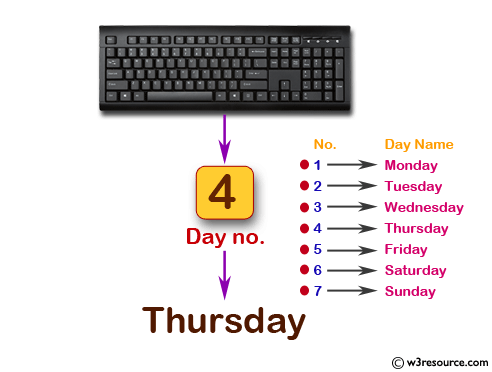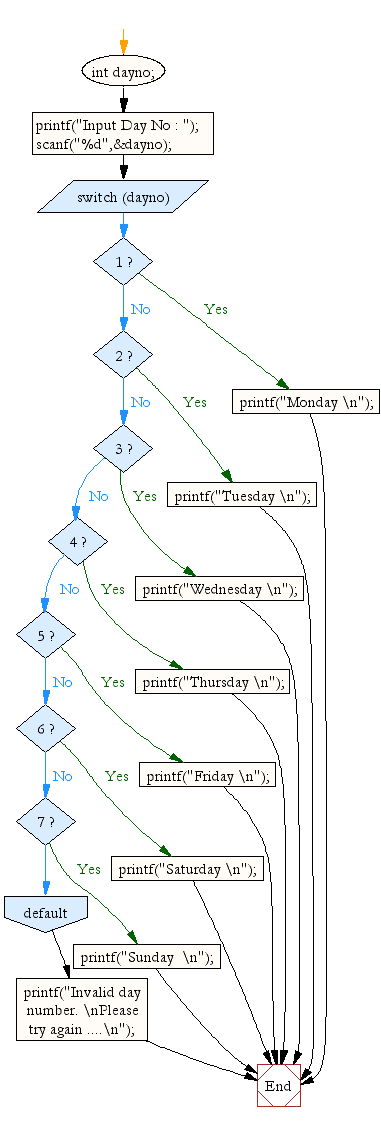C Exercises: Accept day number and display its equivalent day name in the word
C Conditional Statement: Exercise-21 with Solution
Write a program in C to read any day number in integer and display day name in the word.
Pictorial Presentation:

Sample Solution:
C Code:
#include <stdio.h>
void main()
{
int dayno;
printf("Input Day No : ");
scanf("%d",&dayno);
switch(dayno)
{
case 1:
printf("Monday \n");
break;
case 2:
printf("Tuesday \n");
break;
case 3:
printf("Wednesday \n");
break;
case 4:
printf("Thursday \n");
break;
case 5:
printf("Friday \n");
break;
case 6:
printf("Saturday \n");
break;
case 7:
printf("Sunday \n");
break;
default:
printf("Invalid day number. \nPlease try again ....\n");
break;
}
}
Sample Output:
Input Day No : 4 Thursday
Flowchart:

C Programming Code Editor:
Improve this sample solution and post your code through Disqus.
Previous: Write a program in C to accept a grade and display the equivalent description
Next: Write a program in C to read any digit, display in the word.
What is the difficulty level of this exercise?
Test your Programming skills with w3resource's quiz.
C Programming: Tips of the Day
Static variable inside of a function in C
The scope of variable is where the variable name can be seen. Here, x is visible only inside function foo().
The lifetime of a variable is the period over which it exists. If x were defined without the keyword static, the lifetime would be from the entry into foo() to the return from foo(); so it would be re-initialized to 5 on every call.
The keyword static acts to extend the lifetime of a variable to the lifetime of the programme; e.g. initialization occurs once and once only and then the variable retains its value - whatever it has come to be - over all future calls to foo().
Ref : https://bit.ly/3fOq7XP
- New Content published on w3resource:
- HTML-CSS Practical: Exercises, Practice, Solution
- Java Regular Expression: Exercises, Practice, Solution
- Scala Programming Exercises, Practice, Solution
- Python Itertools exercises
- Python Numpy exercises
- Python GeoPy Package exercises
- Python Pandas exercises
- Python nltk exercises
- Python BeautifulSoup exercises
- Form Template
- Composer - PHP Package Manager
- PHPUnit - PHP Testing
- Laravel - PHP Framework
- Angular - JavaScript Framework
- Vue - JavaScript Framework
- Jest - JavaScript Testing Framework
